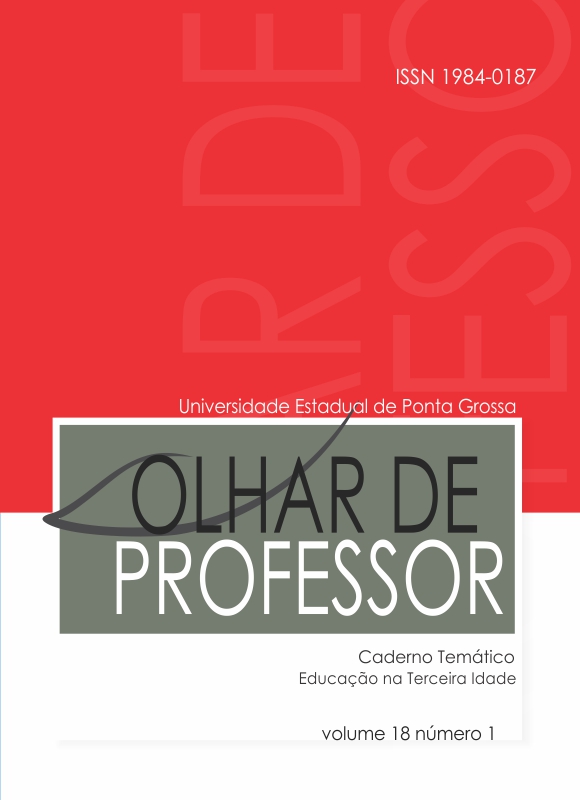ENTORNOS INTERGENERACIONALES, UNA ALTERNATIVA DE INCLUSIÓN SOCIAL PARA LA POBLACIÓN ADULTA MAYOR
Conteúdo do artigo principal
Resumo
y mecanismos de participación, esencialmente, para la generación adulta mayor, toda vez que lleva
consigo un sin número de experiencias que requieren de un presente incluyente; es decir, abierto a
los aportes que ésta población pueda ofrecer a las generaciones futuras. Es así como se destaca la
importancia de identificar espacios que propicien encuentros entre generaciones, con el fin de lograr
beneficios y aportes integrales mutuos; máxime cuando, en nuestro tiempo, los encuentros de este tipo no
están inmersos en un programa específico que se desarrolle para una finalidad concreta. Por el contrario,
pueden identificarse actividades que aportan a dicho ejercicio (encuentro intergeneracional) pero sin estar fundamentadas para tal fin. Por lo anterior adquiere importancia mayúscula la sensibilizaciónhacia el imaginario colectivo en torno a la importancia de inmiscuirse en procesos de participación, que
generen estrategias encaminadas a que los más viejos le aporten al proyecto de vida de generaciones en formación y, a su vez, la persona mayor tenga un envejecimiento con calidad. Es así como las relaciones intergeneracionales permiten, en este sentido, generar no sólo inclusión social, sino retroalimentación entre generaciones que faciliten la interacción entre las mismas y el surgimiento de mecanismos de participación en donde las personas mayores sean las más beneficiadas.
Downloads
Detalhes do artigo
Autores que publicam nesta revista concordam com os seguintes termos:
a) Os autores mantêm os direitos autorais e concedem à revista o direito de primeira publicação, com o trabalho simultaneamente licenciado sob a Creative Commons Attribution License Atribuição 4.0 Internacional (CC BY 4.0) que permite o compartilhamento do trabalho com reconhecimento da sua autoria e publicação inicial nesta revista.
b) Os autores são autorizados a assinarem contratos adicionais, separadamente, para distribuição não exclusiva da versão publicada nesta revista (por exemplo, em repositórios institucionais ou capítulos de livros), com reconhecimento da sua autoria e publicação inicial nesta revista).
c) Os autores são estimulados a publicar e distribuir a versão onlline do artigo (por exemplo, em repositórios institucionais ou em sua página pessoal), considerando que isso pode gerar alterações produtivas, bem como aumentar o impacto e as citações do artigo publicado.
d) Esta revista proporciona acesso público a todo o seu conteúdo, uma vez que isso permite uma maior visibilidade e alcance dos artigos e resenhas publicados. Para maiores informações sobre esta abordagem, visite Public Knowledge Project, projeto que desenvolveu este sistema para melhorar a qualidade acadêmica e pública da pesquisa, distribuindo o OJS assim como outros softwares de apoio ao sistema de publicação de acesso público a fontes acadêmicas.
e) Os nomes e endereços de e-mail neste site serão usados exclusivamente para os propósitos da revista, não estando disponíveis para outros fins.
______________

Este obra está licenciado com uma Licença Creative Commons Atribuição 4.0 Internacional.





